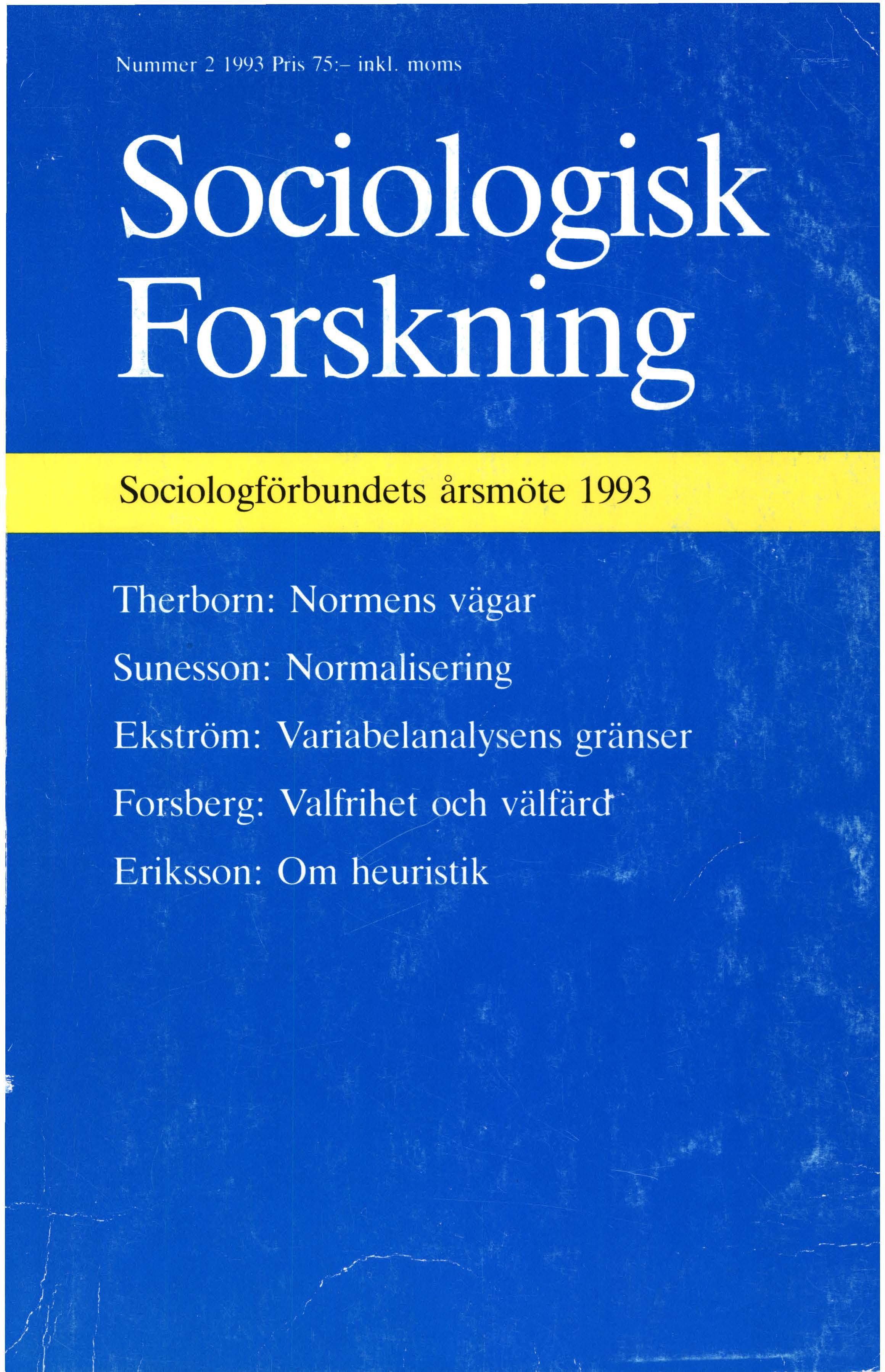Valfrihet och välfärd. En diskussion och analys av det liberala valfrihetsbegreppet
DOI:
https://doi.org/10.37062/sf.30.18638Abstract
Freedom of choice and welfare. A discussion and analysis of the neo-liberal concept of freedom of choice
Sweden is today witnessing large changes within its welfare sector which has been driven through by the present government. In this paper the ideological basis for the present politics is regarded as constituting two apparent contradictory demands. On the one hand there is the demand for “more family” and on the other, the demand for “more market". This paradox by the government can be solved by the use of the vague concept “freedom of choice”. This paper is an attempt to formulate and understand the concept, that is, to analyse its meaning and social consequences. The government’s key strategy is to make the “welfare-consumer” vote with his/her feet and to leave one service for another, so in this way they can express preferences on a market. By doing so they will not only become more satisfied themselves, but they can also exercise influence over the whole institution. Subsequently the “invisible hand” will automatically create efficency and quality. This paper argues that to properly understand the possibilities of and obstacles to a more substantial freedom of choice within social welfare, it is necessary to proceed from the characterstic distinguishing qualities of different services. This is illustrated by a comparison between the dental service and child care. It is less complicated to replace one dentist for another, than to break down the interwoven ties between a child, a parent and an institution because the choice in the second case is more socially embedded and restricted. It is the governments intention to reduce political influence over welfare production and increase the power of markets and economic steering, i.e . to encourage influence and steering by “exit” instead of “voice” (Hirschman 1972) which they believe will increase the individuals freedom of choice. This is a much more complicated matter than is generally agreed by the government, and implies social consequences which it has not taken into account.
Downloads
Published
How to Cite
Issue
Section
License
All content in Sociologisk Forskning is published with immediate open access, under the Creative Commons license CC BY-NC-ND 4.0.
All content may be read, downloaded, shared and printed for non-commercial purposes, free and without fees. Contents may not be altered. When content is reused, author, source and a link to the copyright licence must be provided. The author retains copyright to their content. No publication fees are charged.





